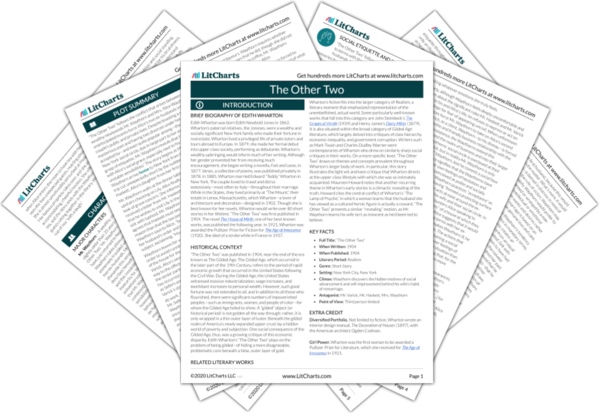Marriage and Gender Inequality
“The Other Two” features a middle-aged couple, Mr. Waythorn and Mrs. Alice Waythorn, recently returned from their unexpectedly short honeymoon. Though at first the Waythorns appear to be a happy couple, Wharton is quick to establish tensions between the pair, many of which exist as a result of gender-based inequalities. Most immediately, there is the reason for their return—Alice’s daughter, Lily, has fallen ill. Unlike Mr. Waythorn, the marriage is not Alice’s first…
read analysis of Marriage and Gender InequalitySocial Advancement
Mr. Waythorn might be the primary breadwinner in “The Other Two,” but it’s his wife, Alice Waythorn, who most embodies the ideals of social advancement and self-improvement that were prevalent during the Gilded Age, when the story was published. As a woman, Alice Waythorn takes full advantage of one of the few methods by which she may improve her social standing: marriage. As the story progresses, the reader—and Mr. Waythorn—learns that Alice Waythorn wasn’t…
read analysis of Social Advancement








Social Etiquette and Illusions
“The Other Two” follows Mr. Waythorn as he comes to terms with the fact that his wife’s two ex-husbands, Mr. Haskett and Mr. Varick, are not far-off memories from another time and place but are real people who still play a role in the Waythorns’ lives. Although this is already tricky territory to navigate, Mr. Waythorn’s plight is complicated by the social norms and rigid standards of etiquette that govern his society. Even…
read analysis of Social Etiquette and Illusions